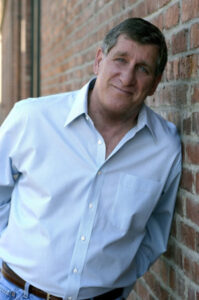
When the fine folks of Boston think about organized crime in their fair city, if they think about the subject at all, they think of Whitey Bulger. Or maybe Johnny Depp playing Whitey Bulger. They think of the Patriarca crime family, also called the Boston Mafia, most of whose members are dead or in jail. They think of thugs they’ve seen in movies, guys whose last names end in vowels, wearing tracksuits and stocking caps as they unload boxes from a hijacked truck.
What they don’t think about is Carson Newman and Newman Enterprises.
Carson Newman doesn’t wear tracksuits. He wears suits made by Dior that retail for five grand. His headquarters occupies the entire thirty-fifth floor of the Prudential Tower; he doesn’t work out of the back room of a bar. He doesn’t have a consigliere. He retains a white-shoe law firm with four hundred lawyers whose partners are all WASPs. He’ll never go to jail for tax evasion like Al Capone, because his accountants help him evade paying taxes without breaking the law. There have been several years when Carson didn’t pay any federal income tax at all, and he didn’t commit a crime by not doing so.
Carson’s father had owned commercial property all over the Northeast—office buildings, shopping malls, apartments occupied mostly by low-income families—and when he passed away, Carson inherited these. So Carson didn’t exactly pull himself up by his bootstraps, but to his credit, he significantly expanded his father’s real estate empire. In addition to acquiring more properties, he became a builder. He quickly learned that being a builder was a risky, complicated business where the chance of failure was extremely high. Something as simple as a four-story apartment building or a shopping mall could take years to construct; skyscrapers, football stadiums, and golf courses could take a decade or more. It took months to line up the financing. It took ages to acquire the land and obtain the necessary permits and do the environmental impact studies needed to demolish existing structures and erect new ones. And there was always some group that was determined to stop whatever you were trying to build, and it would stage protests and bombard you with lawsuits. And by the time you paid off the bankers and the union laborers and the lawyers and the architects and the engineers, a builder was just as likely to end up in the red as in the black. Twice, Carson had to declare bankruptcy—not that it affected his lifestyle—and had to regroup.
But no one called Carson Newman a gangster; nobody called him Godfather or the don.Carson soon learned that bribing the right people for permits was faster and cheaper than following the prescribed process. Blackmailing a city councilman who had a predilection for girls still in their teens was helpful when a zoning ordinance needed to be changed. And if he had stubborn, unreasonable tenants that he needed to vacate a space so it could be renovated and rented for a higher rate, there were people who could be hired to persuade them to move. Lawyers, not gunmen, became his foot soldiers. He sued his opponents and countersued whoever sued him, and he usually won because his adversaries rarely had the resources to endure legal battles that could stretch out for years.
What Carson also learned was that he had to take a different approach when it came to politicians. Politicians could either pave the way for success or become major roadblocks, and simply donating to their campaigns and socializing with them often didn’t produce the right results. So in addition to the lawyers and the accountants that he employed, Carson put a lobbyist on his payroll who helped him put politicians on his payroll.
But no one called Carson Newman a gangster; nobody called him Godfather or the don.
At the age of fifty-six, Carson was worth several billion dollars. He had a lovely, cultured wife who was five years younger than he was. She had raised his two attractive children and now sat on the boards of various charities. He had a twenty-seven-year-old mistress who resided in an apartment he owned in Boston. He owned a restaurant he’d named after his daughter that charged forty bucks for a salad. He owned a mansion in Brookline, a town house in the Back Bay within strolling distance of Fenway, where he had box seats, and vacation places on Cape Cod and in Naples, Florida. He was a member of The Country Club, where a membership reportedly went for as much as half a million dollars.
Yes, Carson was on top of the world—and he was not about to let some nobody employed by John Mahoney topple him from his perch.
__________________________________

Mike Lawson is a former senior civilian executive for the US Navy. He is the Edgar Award-nominated author of more than fifteen novels starring Joe DeMarco and three novels with his protagonist Kay Hamilton.


